As summer draws near, bundles of garlic scapes abound at farmers’ markets with their wild, curly tendrils and you might be seeing them in your own garden too.
If this is the first time you’re growing hardneck garlic at home, you’re in for a treat because you actually get two completely different harvests—each with its own distinctive flavor and texture—from the same plants in the same season.
Those pretty spiral stems that form above your garlic from mid-May to mid-June are edible, and they’re a foodie favorite that can be used like a vegetable.
By picking this bonus crop now and reaping its delicious benefits, you’ll even improve your garlic harvest the following month! That’s because garlic can double in size during its last few weeks of growth. Removing the scape increases mature bulb size by up to 25 percent, as it redirects energy back to the bulbs (and not the production of seeds).
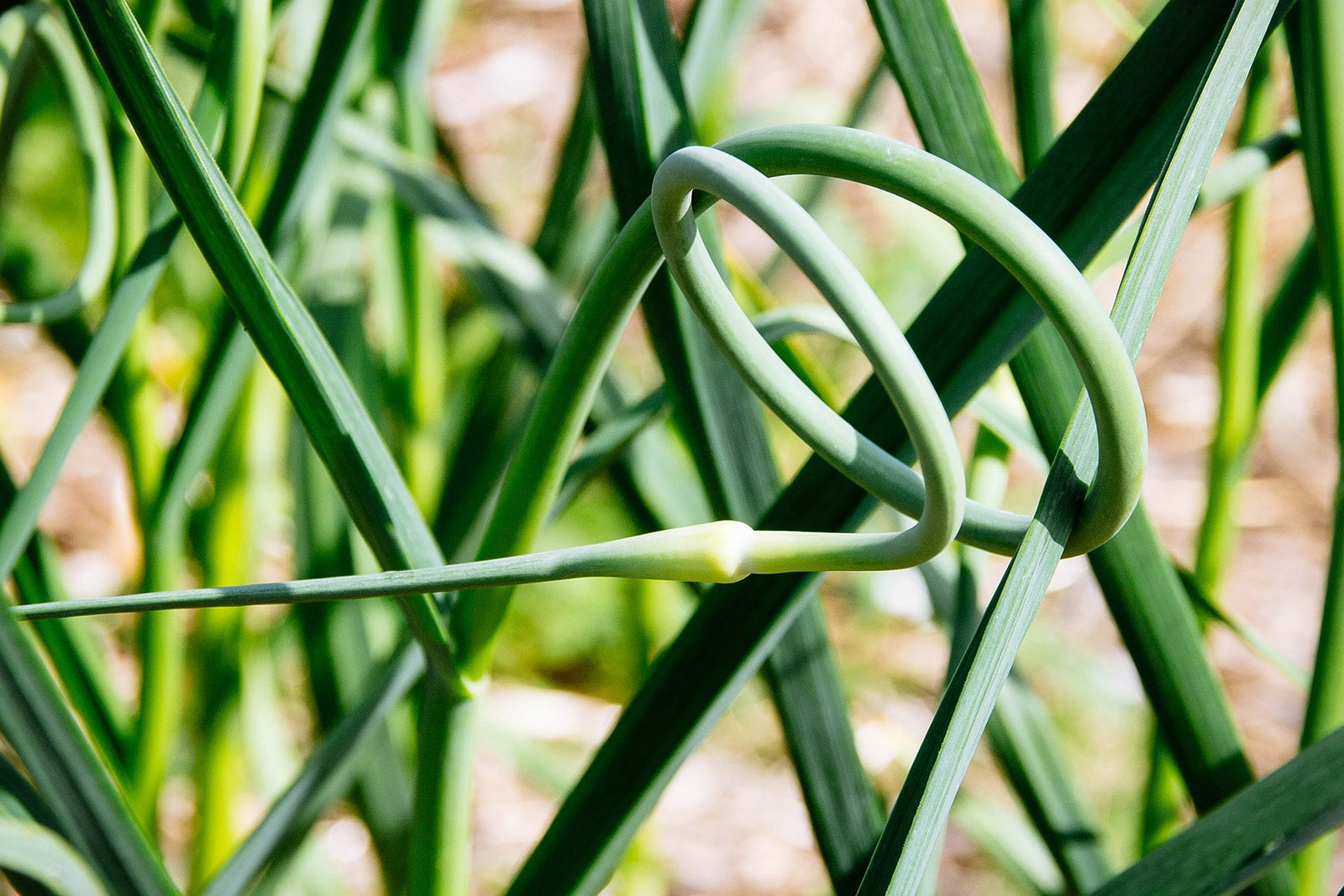
What is a garlic scape?
Garlic scapes are the hard, central flowering stems of hardneck garlic, but they don’t actually flower in the traditional sense. The stems grow straight up for several inches, then curl once or twice around before growing upward and blooming.
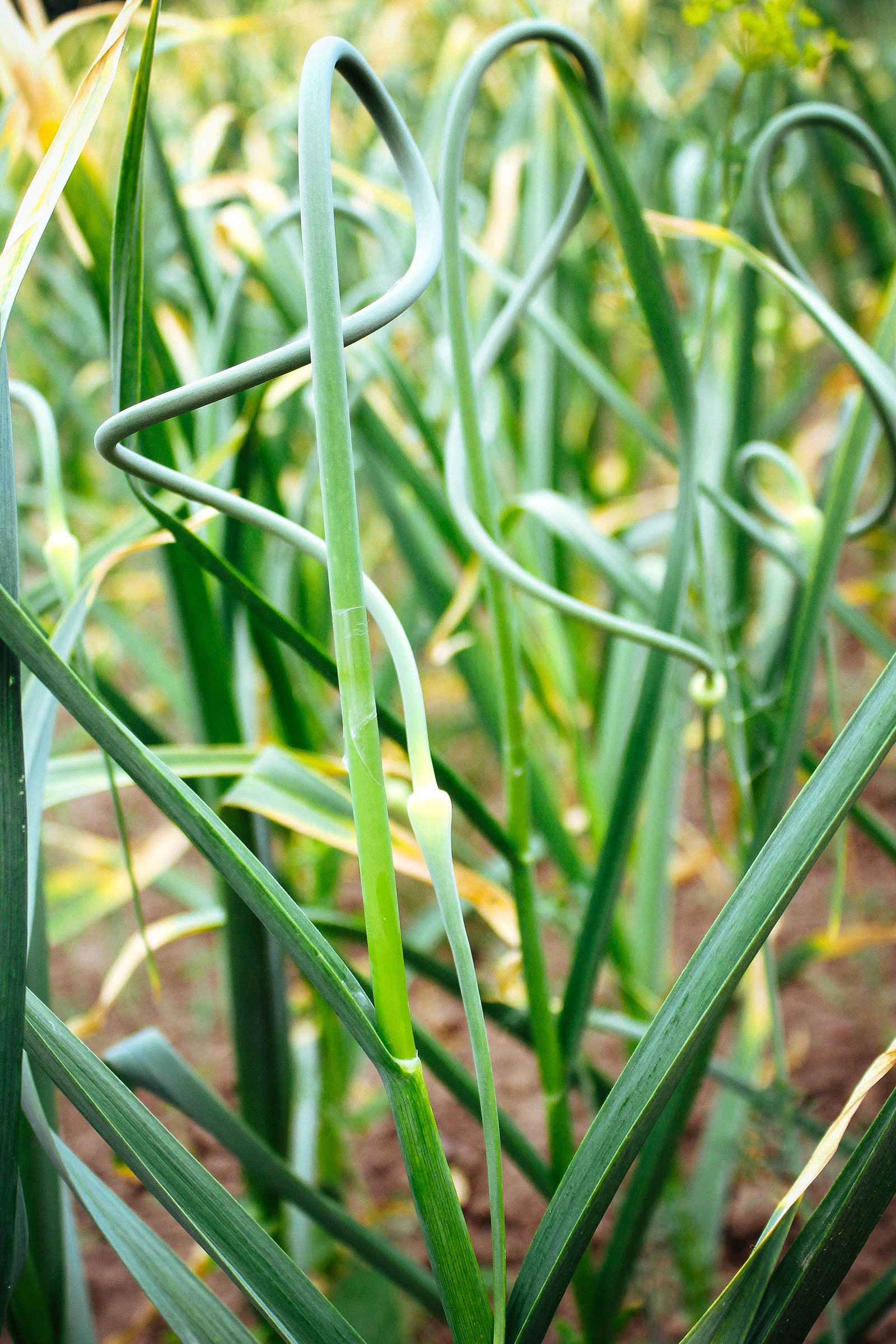
If left to mature, the seed pod at the end of the scape will produce small bulbils (essentially tiny, undivided bulbs—like baby plants, or clones of the parent) that can be planted to produce more garlic.
(You might be tempted to try this, but growing garlic from bulbils takes a considerably longer time than growing garlic from cloves—up to two or three years for a decent-sized bulb.)
The long, thin stems of garlic scapes (which are sometimes called garlic shoots, stems, stalks, or spears) have the crispness of a snap bean and the flavor of garlic crossed with green onion. They’re milder than garlic cloves and have a “greener” and fresher taste—like what you’d imagine a plant stem to have.
Scapes can be used in a lot of different and delicious ways in the kitchen, both raw and cooked, and I wrote about some of my favorite uses for garlic scapes here.
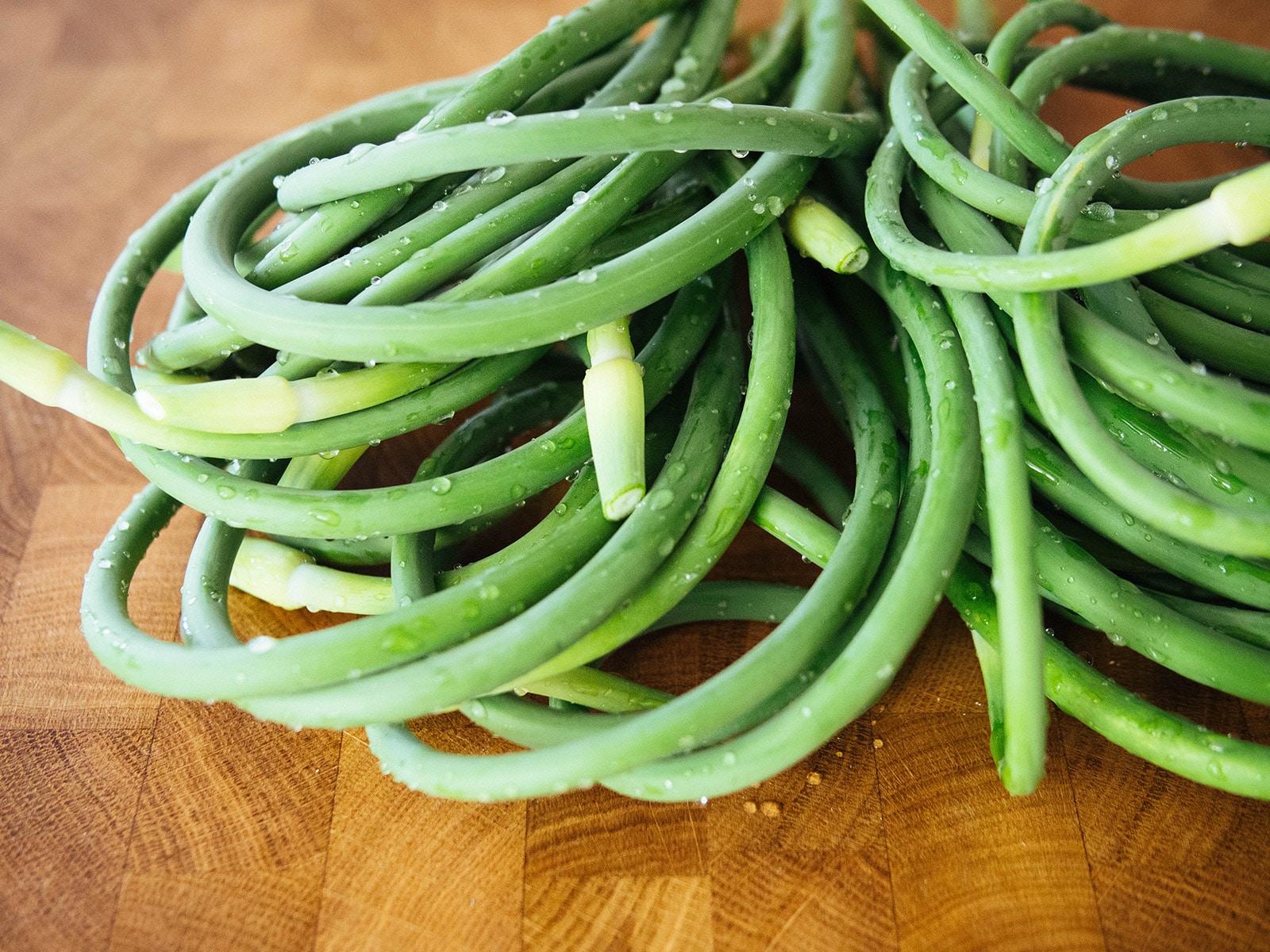
How to harvest
Once you see the exuberantly loopy shoot forming in late spring or early summer, you’ll know your garlic harvest is only four to six weeks away!
In most climates in the Northern Hemisphere, the season for garlic scapes starts some time in mid-May to mid-June. Day length, as well as accumulated Growing Degree Days (GDD), determines when the scapes appear and when your garlic bulbs are ready for harvesting and curing.
You’ll want to harvest the scape once it’s grown above the rest of the plant and just before (or just after) the top of the stem forms it first loop.
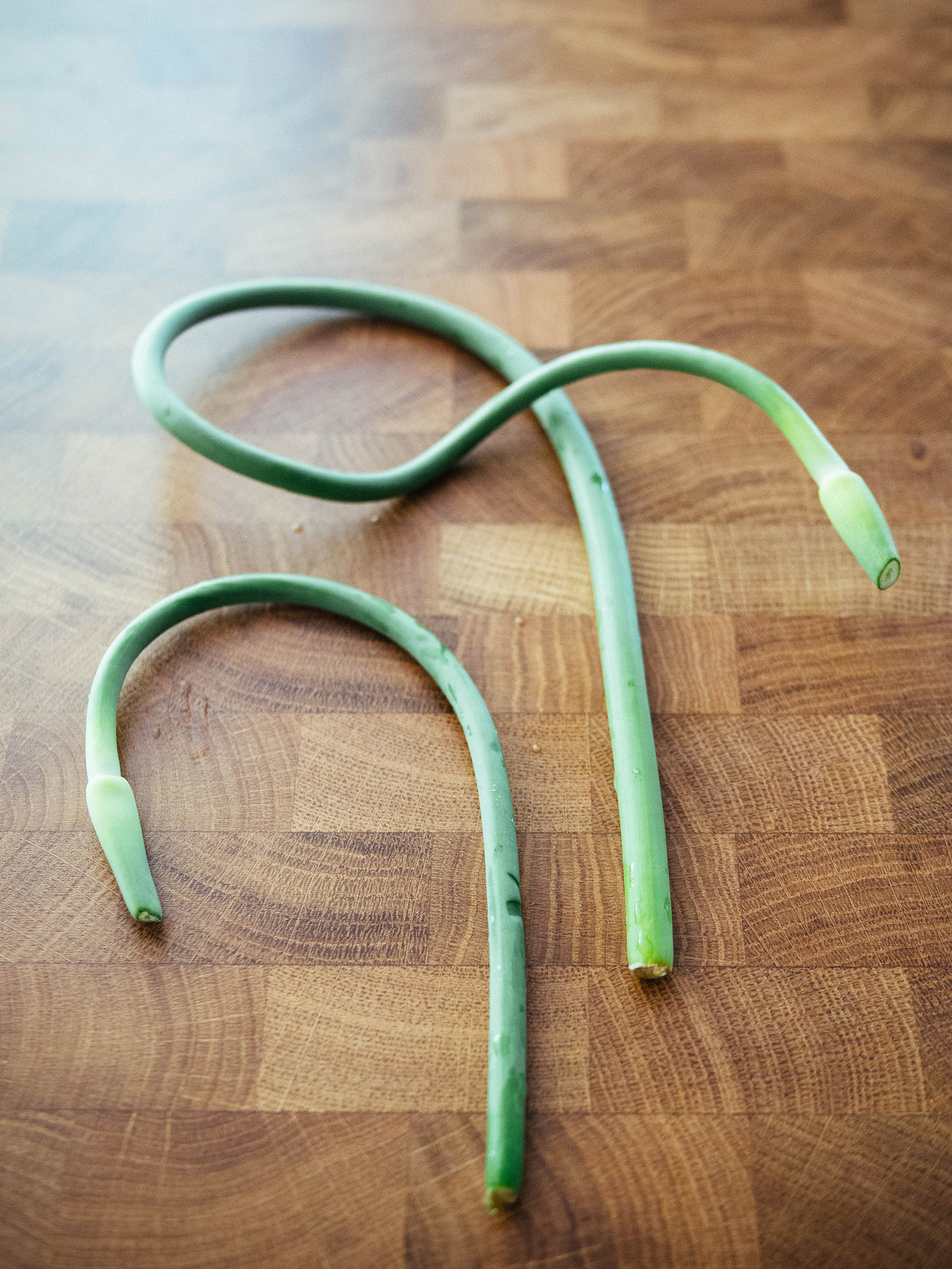
If you let it continue coiling around, the scape will toughen up (making it not nearly as palatable) and reduce the final yield of the garlic bulb.
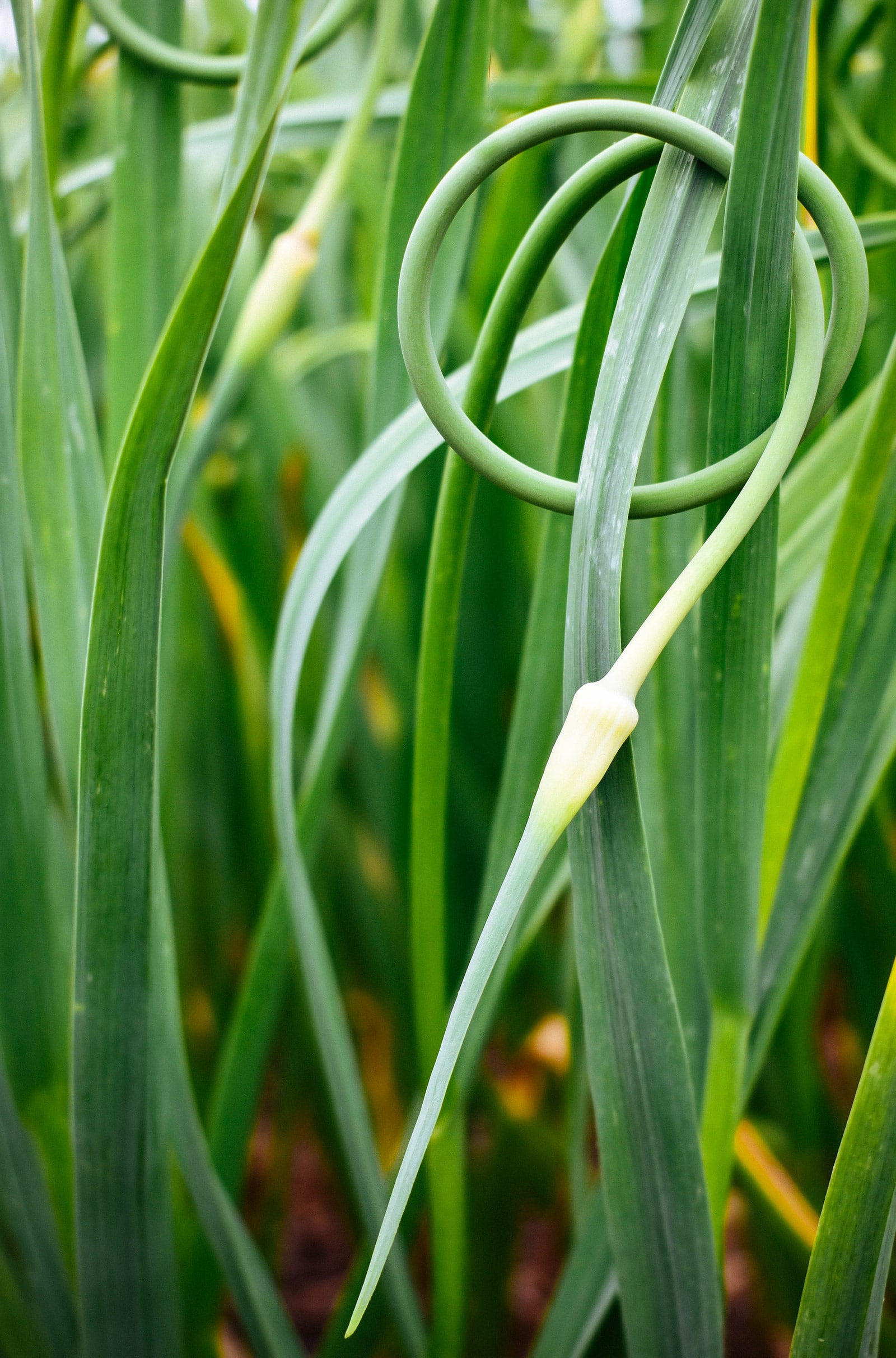
It’s best to harvest scapes in late morning to afternoon when it’s dry, that way the cut has time to heal and is less susceptible to disease. Use pruning shears or snips for a clean cut, and cut the stem at the point where it meets the topmost leaf of the plant. Avoid cutting off any leaves with the scape!
But!
Here’s my personal trick for maximizing a garlic scape harvest: Pull it out with your hand.
Grasp the stem below the seed pod (which looks like a long pointed cap) and pull slowly and firmly upward. The scape will release with a pop, and you’ll end up with a full-length stem, including the tender lower portion that you otherwise wouldn’t get if you simply cut it off.
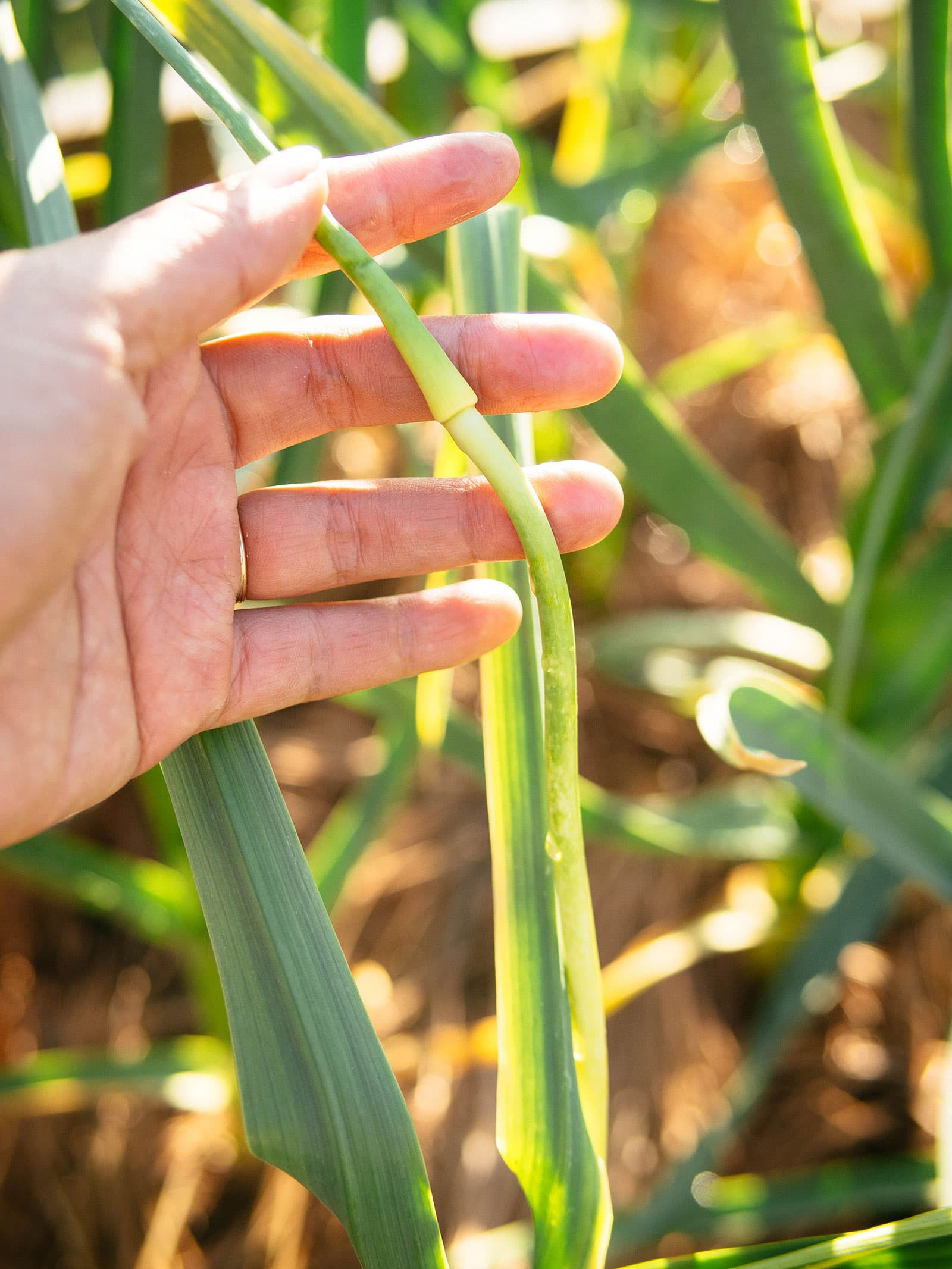
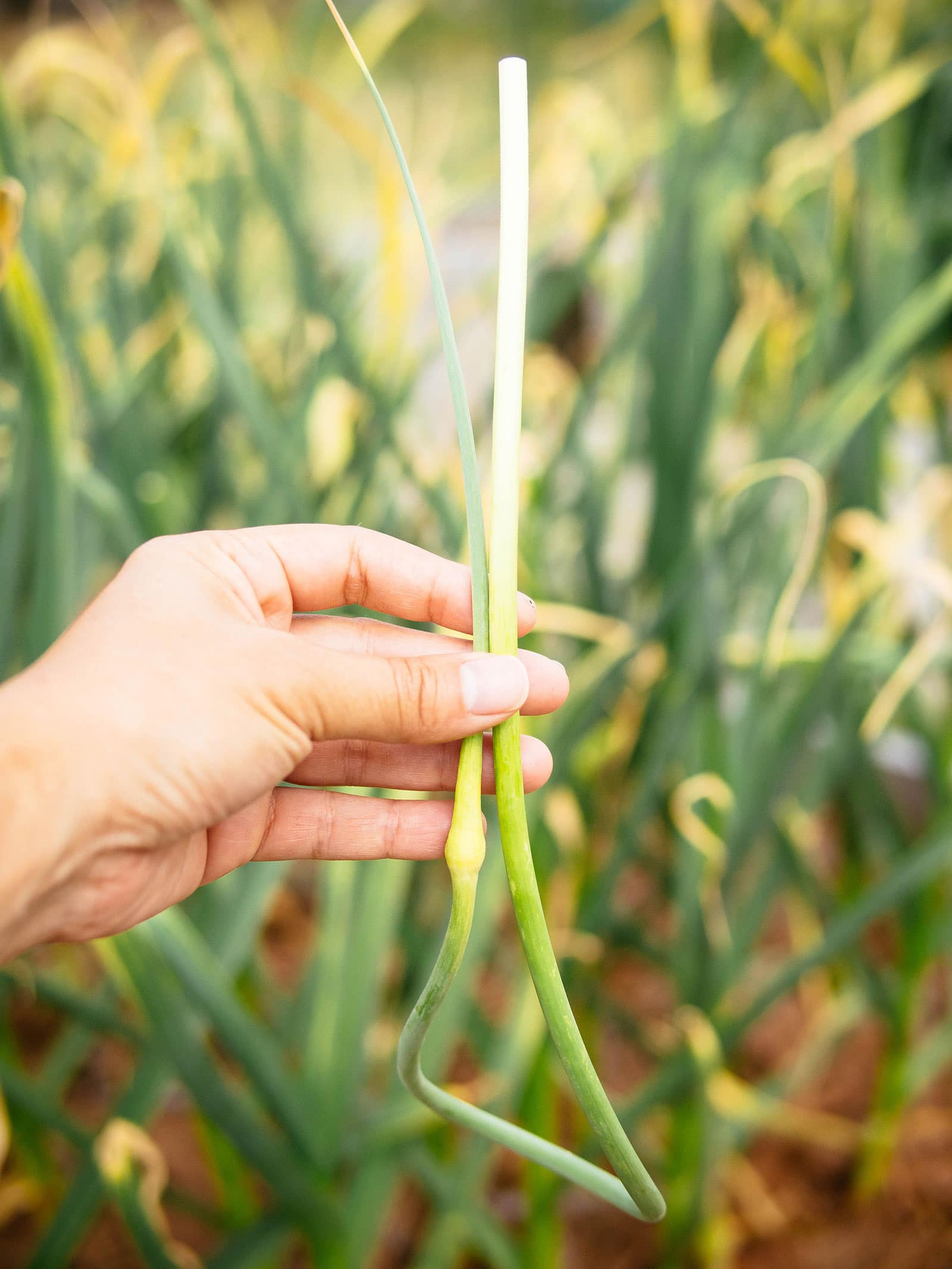
If it pulls out cleanly, you’re left with a hollow stem that looks like this:
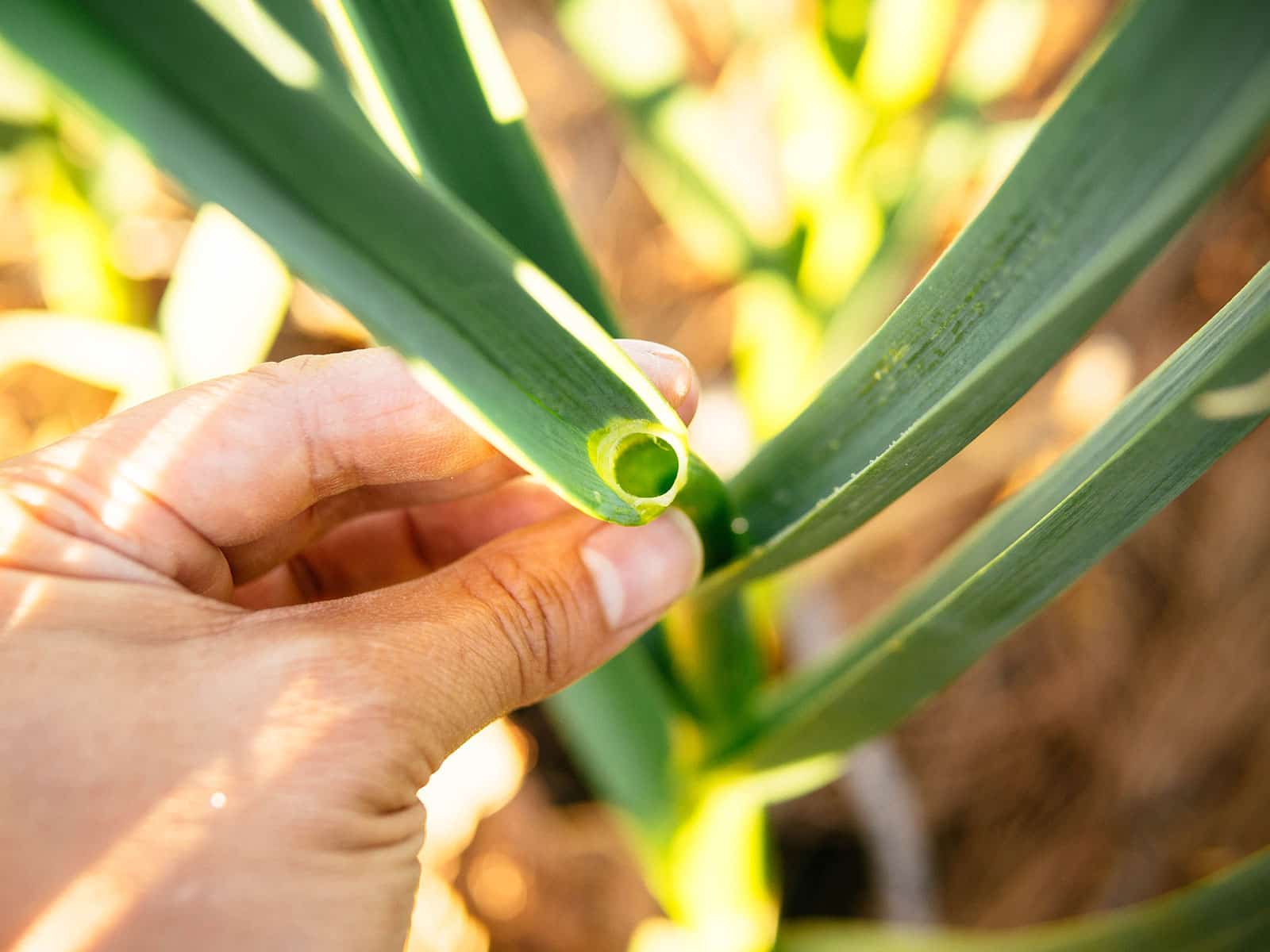
If the scape snaps off before it pulls out, just wait until next time when it’s grown taller and pull the remaining stem. You could actually end up with a second garlic scape harvest this way from the same plant!
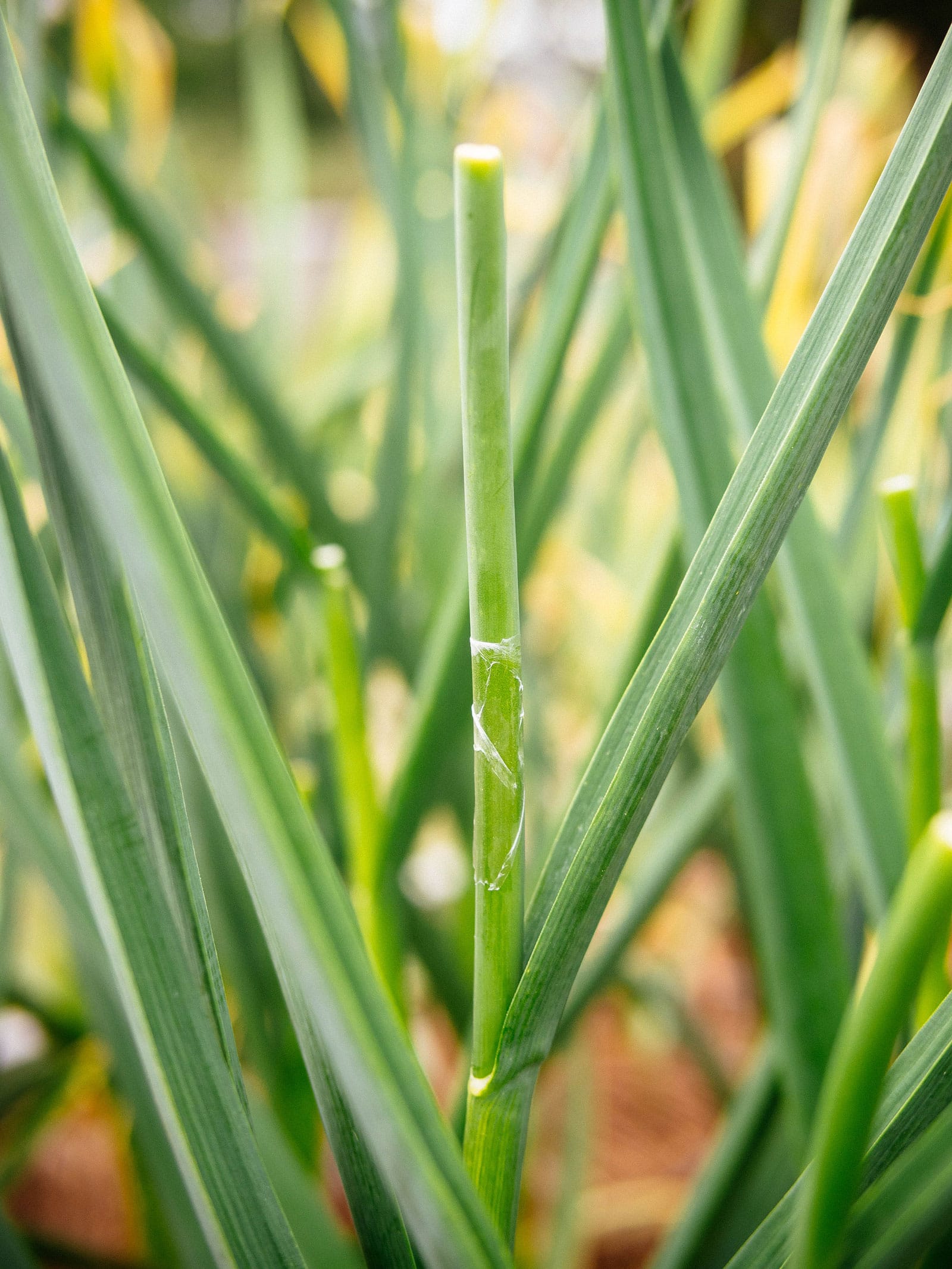
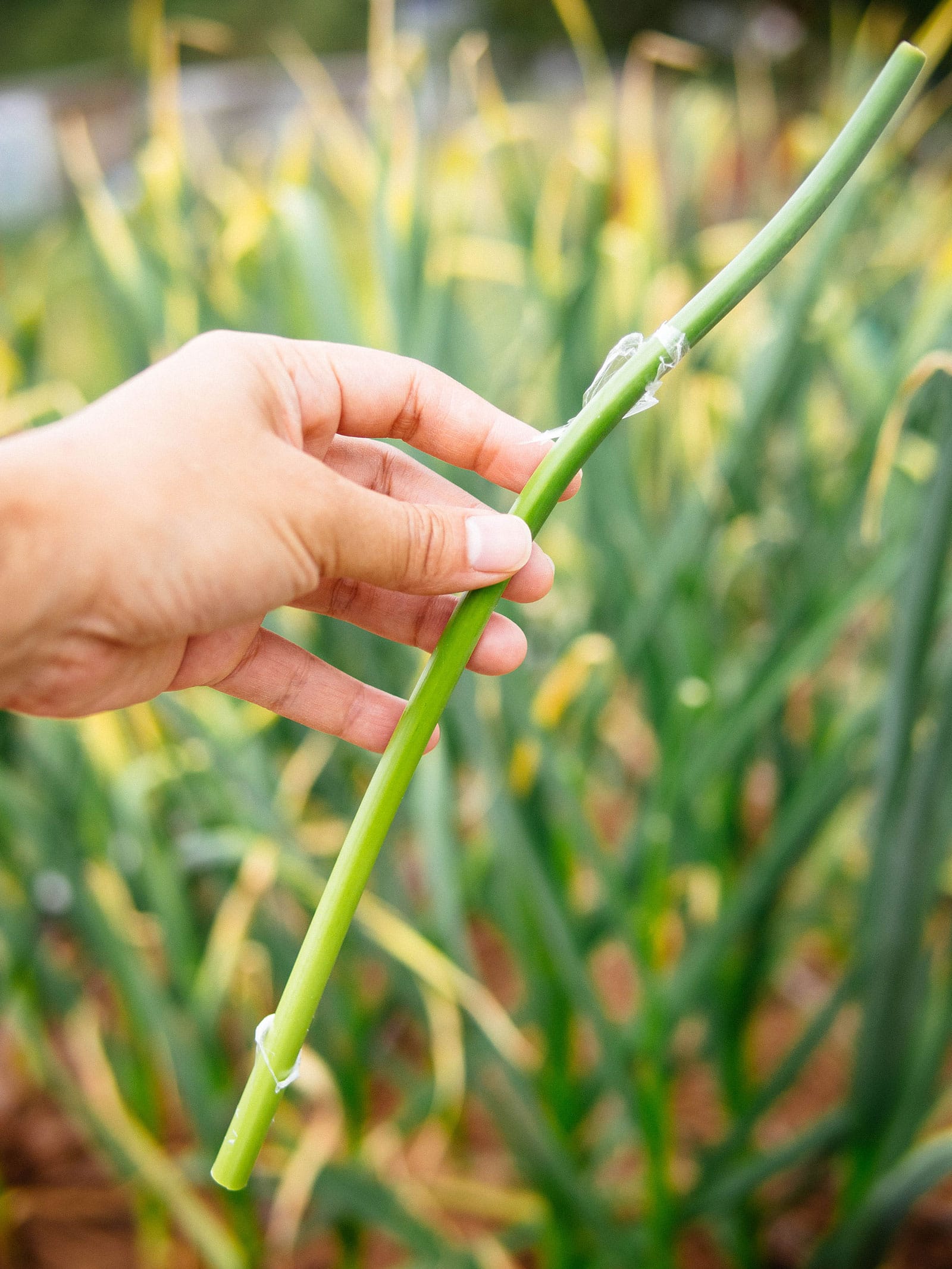
Not all of the scapes will come at once, so visit your garlic patch at least twice a week to look for new scapes until all of them are removed.
If you grow different varieties of garlic, you may notice that the scapes vary a bit, with some being thinner and others thicker. They’ll also produce scapes at different times, which is nice because it makes the harvest season longer so you can enjoy them in batches.
Don’t let good food go to waste
Get my Fruit & Vegetable Storage Guide
You’ll find lots of printable charts, helpful tips, and secret tricks for keeping your produce super fresh for as long as possible.
How to store
Before storing or cooking, I like to trim the pointy end for a neater appearance and a more pleasing texture (though it isn’t necessary since the entire scape is edible).
Bundle up the scapes, and either wrap them in a damp towel or store them in a loosely sealed plastic bag. They’ll keep in the refrigerator for two to three weeks this way.
If you plan to use them soon, you can also place garlic scapes in a jar with a couple inches of water, the same way you’d display flowers, and keep them on the counter for a few days.
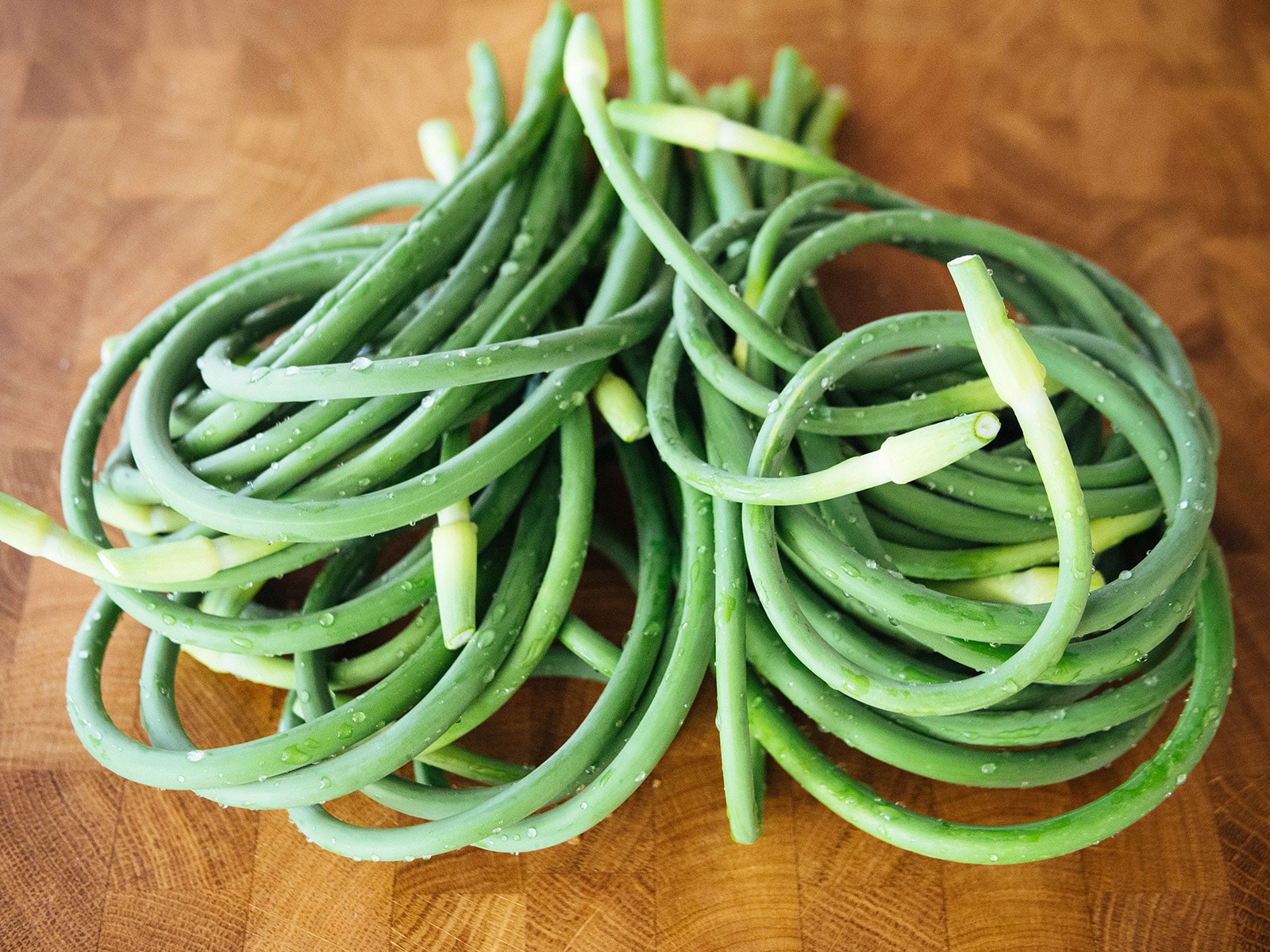
This post updated from an article that originally appeared on July 4, 2012.


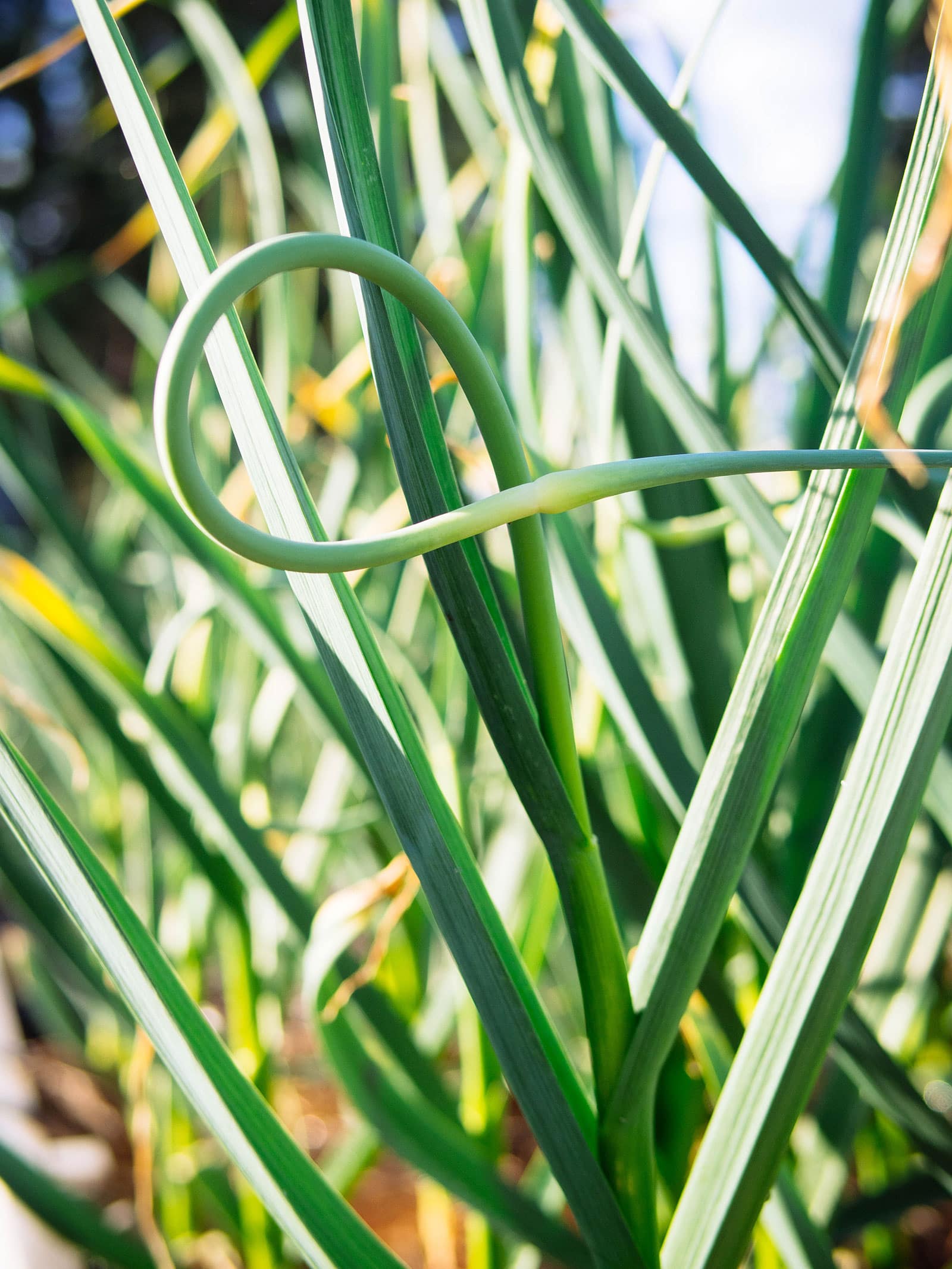
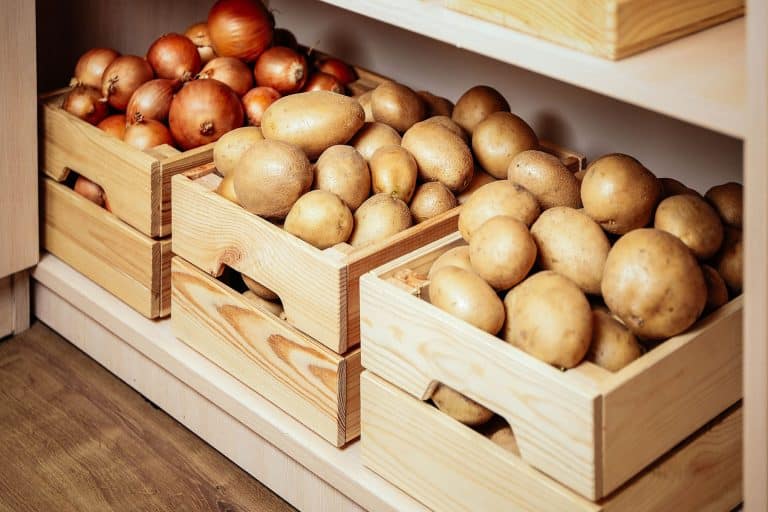
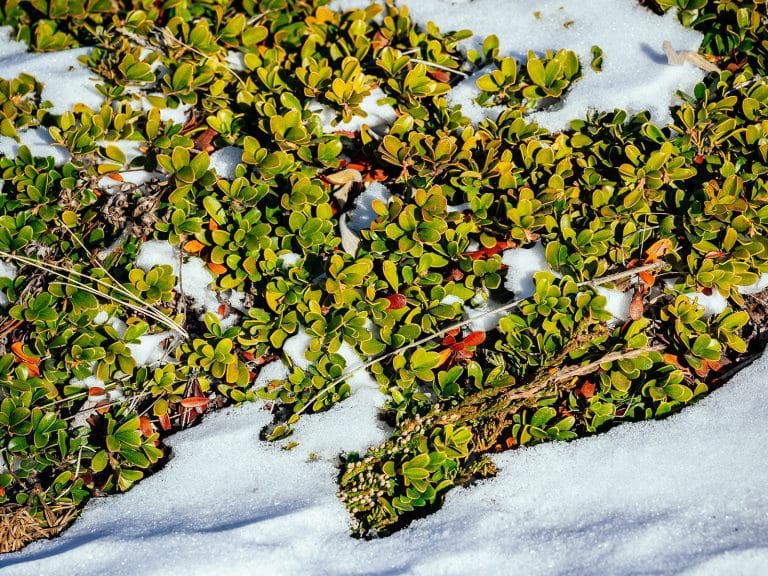
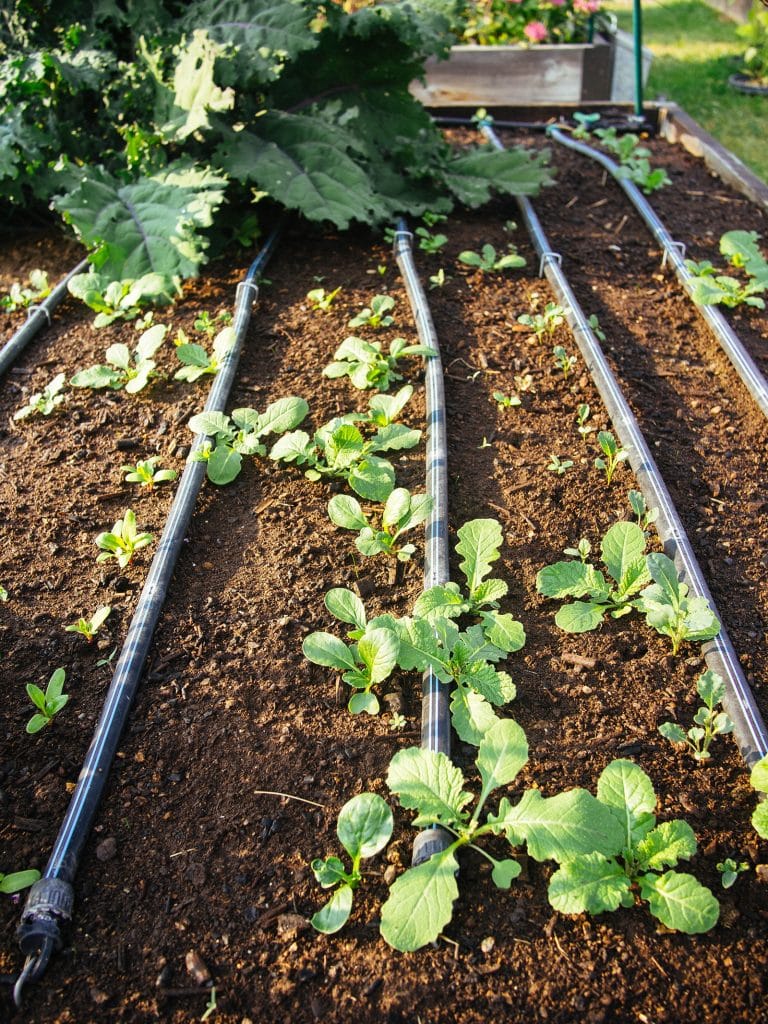
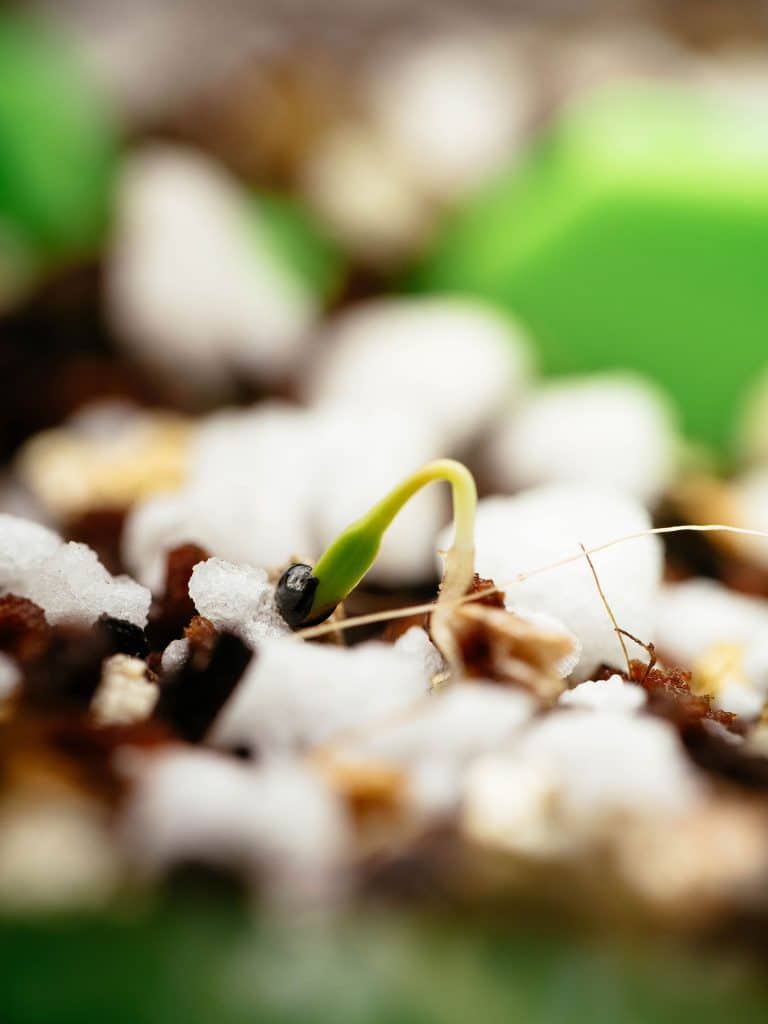


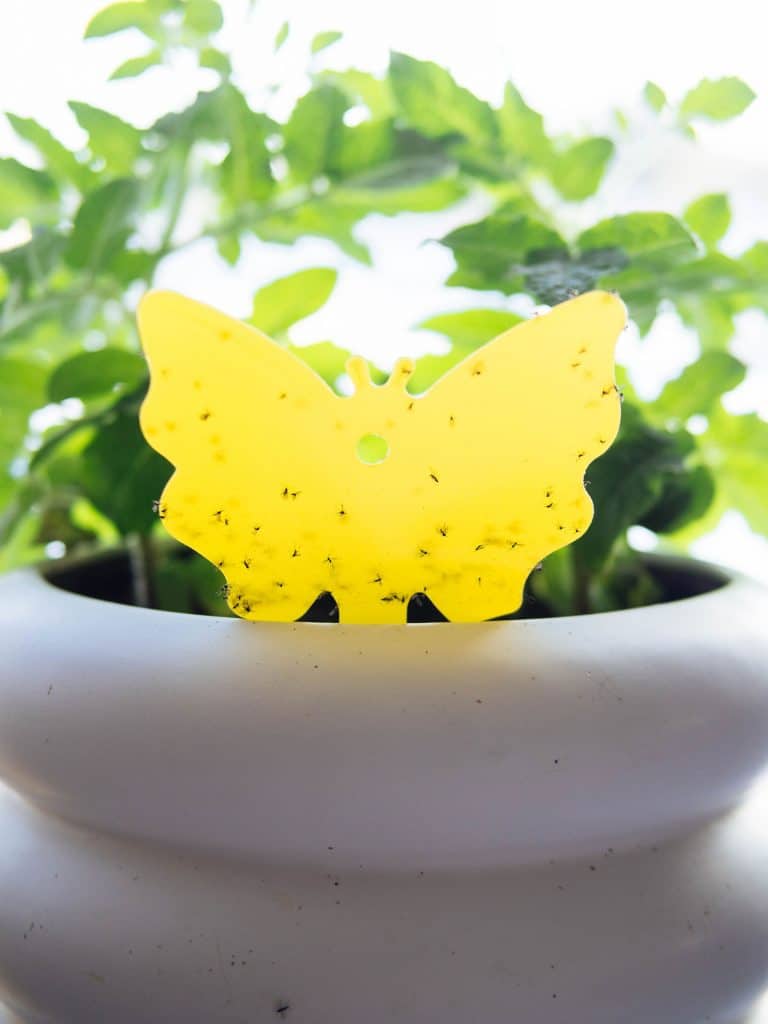
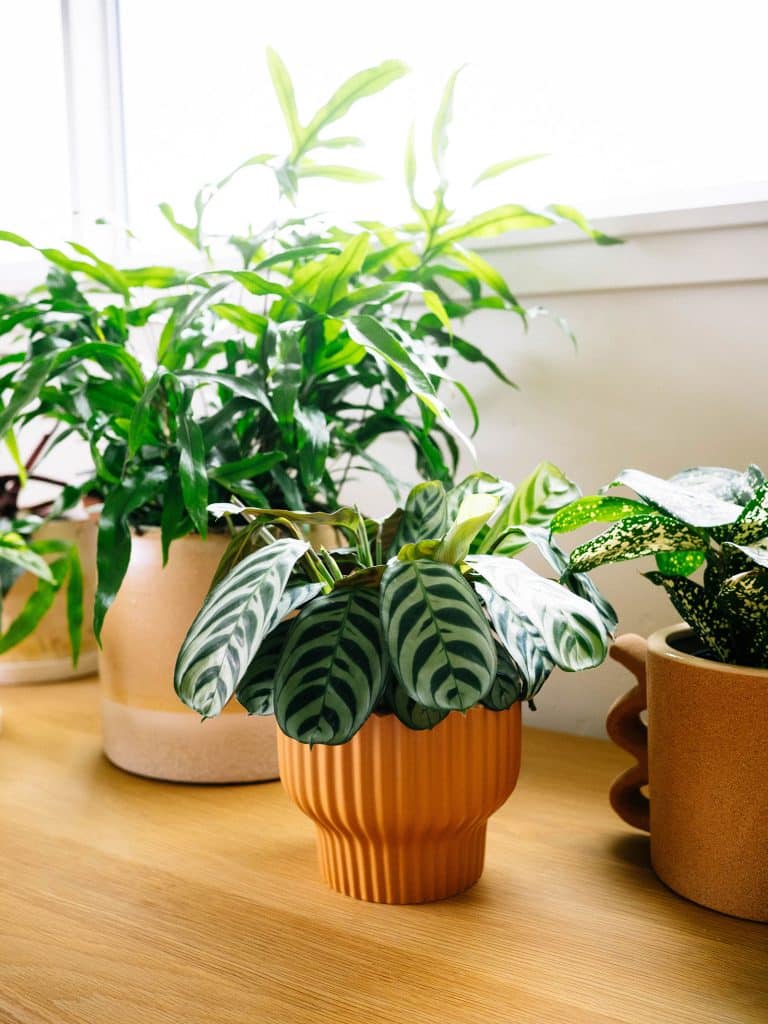
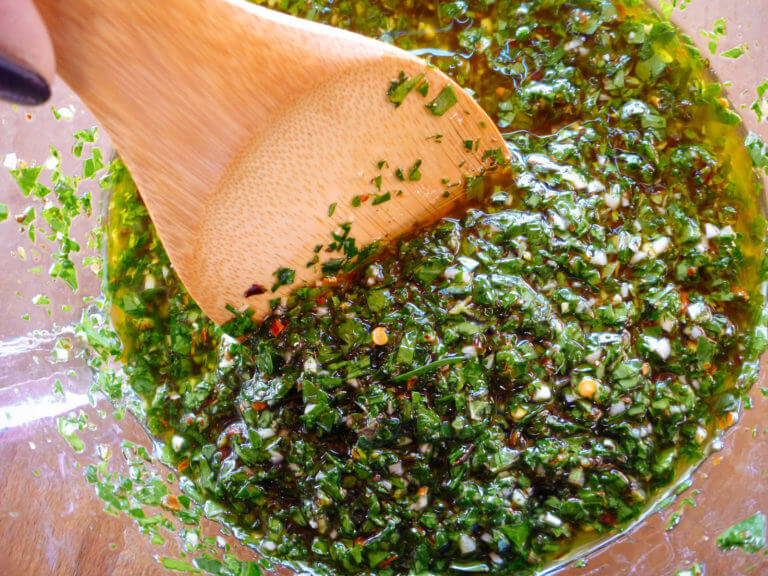
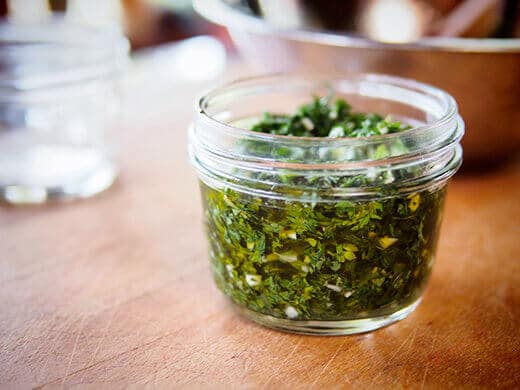
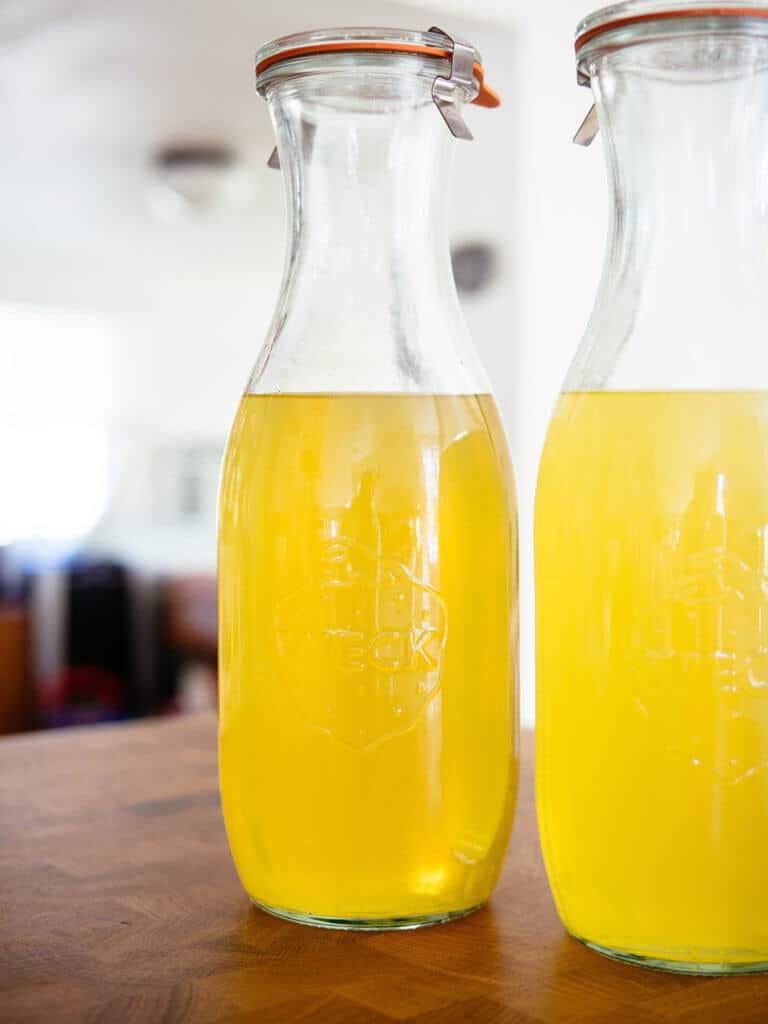
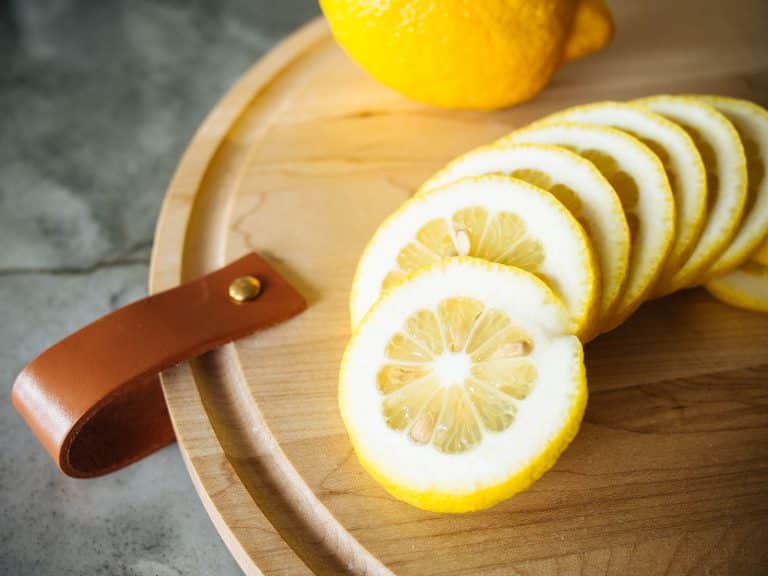

Interesting. I’d always assumed that the little bulbs were asexually produced, in which case they would not be seeds. It seems to be the same phenomenon as the bulbs produced by Egyptian top-set onions, which also produce conventional seeds. If my assumption was wrong, I’d like to know so there will be one less thing that I’m wrong when before I die.
You’re correct, the bulbils are not true garlic seed (though many people refer to them as “garlic seed” because the actual seeds are hard to come by and seldom seen). I wrote more about bulbils here: https://gardenbetty.com/garlic-bulbils/
I grew my own garlic last year and saved a few to let the scapes mature. I planted the scapes and now they are up this year. I want them to grow into mature garlic. Do I dig them up this year and replant, or can I just leave them in the ground. And should I remove their scapes so they can mature better? Thanks!
Do you mean you planted the bulbils that formed on the scapes? If so, the bulbils won’t turn into garlic for a few years so you should let the plants keep growing.
I have regular garlic but they are very small. I will harvest the scapes this year and see if there is a difference. How does garlic multiply if you pull the whole bulb up when harvesting.
You have to leave garlic in the ground if you want it to multiply and become perennial in your garden.
I bought elephant garlic on Amazon and planted a bulb which was huge. Will I get garlic next year from this bulb?
Great garlic articles, thank you !
Yes, you should. It grows the same way regular garlic does.
Can you freeze these garlic scrapes? How do you do it? I’m glad I found d this site.
You said you always grew Music, as do I ,great flavor but my worst keeper.
yum I need to plant garlic just to enjoy some of these scapes!
They’re a wonderful “bonus” harvest before the actual garlic crop is ready!
The scapes are one of my favorite delicacies! Delicious and very versatile!
Hey, thank you I’ve learnt so much from your blog. This is my first time growing garlic and I wasn’t sure when to harvest. Now I know to use the scapes too.
Enjoy your harvest!
Garlic scape pesto is my favorite way to eat them. Usually bypass cracker or pasta, spoon only 😉
Ditto!
We’ve never used garlic scapes and I’m not even sure I’ve seen them at the store. Next time we go to Whole Foods I’ll look for it and if it’s organic I’ll buy it and try it in some soup.
I’ve never seen them in the store, but I’ve seen them at farmers’ markets.